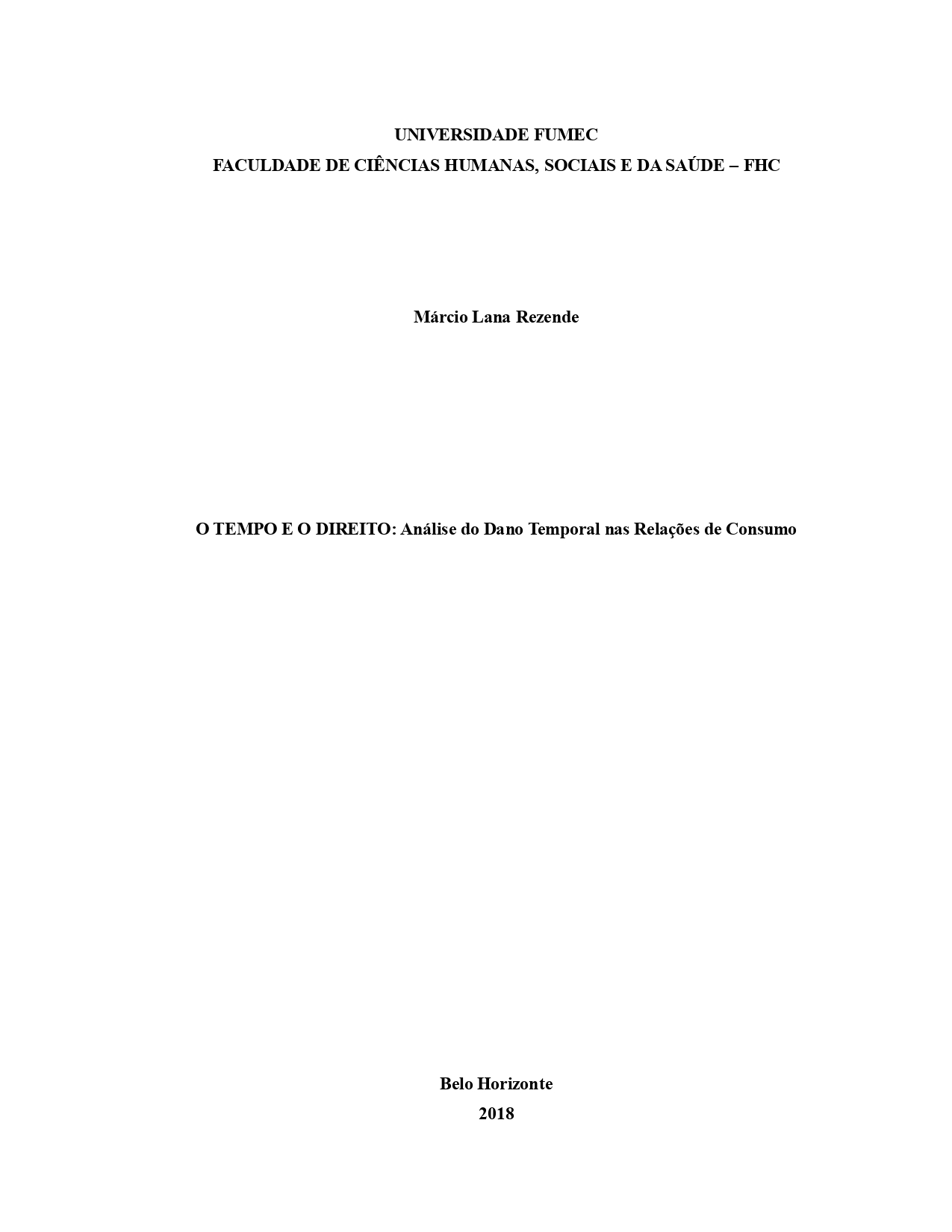O tempo e o direito: análise do dano temporal nas relações de consumo

Visualizar/
Data
2018Autor
Rezende, Márcio Lana
xmlui.mirage2.itemSummaryView.MetaData
Mostrar registro completoResumo
O presente trabalho científico investiga se o tempo gasto pelo consumidor caracteriza-se
como um bem jurídico e, portanto, merece proteção do Direito. Para tanto, discorrem-se e
analisam-se os principais fundamentos que fazem do tempo um bem jurídico, quais sejam a
pós-modernidade, os reflexos decorrentes da má utilização do tempo, a impossibilidade de
ofensa indevida do tempo como garantia de liberação dos recursos produtivos do consumidor
e a legislação posta. Após, é feito um estudo sobre o dano temporal, bem como se averígua a
forma como o judiciário trata o tema-problema. Além disso, buscam-se identificar os
instrumentos previstos no ordenamento, à disposição do consumidor, para a prevenção e
repressão de lesão do tempo nas relações de consumo. Ao final, analisa-se a maneira como as
funções legislativa e executiva, bem como os atores sociais, podem colaborar com a repressão
e prevenção de situações violadoras do bem jurídico tempo. No estudo, utilizar-se-á o método
jurídico-dedutivo, por meio de pesquisa bibliográfica, jurisprudencial e pela legislação. O
marco teórico e principal norteador do trabalho foi Marcos Dessaune e sua obra intitulada
Desvio Produtivo do Consumidor: o prejuízo do tempo desperdiçado e da vida alterada. The present scientific work investigates if the time spent by the consumer is characterized as a
legal asset and, therefore, deserves protection of the Law. To do so, it discusses and analyzes
the main foundations that make of time a legal asset, namely, postmodernity, the reflexes
arising from the misuse of time, the undue offense of time as a guarantee of liberation of the
productive resources of the consumer and legislation. Afterwards, a study is done on the
temporal damage, as well as ascertain the form that the judicial treats the subject. In addition,
it seeks to identify the instruments provided in the ordering, available to the consumer, for the
prevention and repression of injury to the time wasted in consumer relations. In the end,
investigates the way the legislative, executive and other actors can collaborate in repressing
and preventing situations violating the legal good time. In the study, the legal-deductive
method would be used, through bibliographical research, jurisprudential and by the legislation
put. The theoretical framework and main guide of the work was the work of the author
Marcos Dessaune, Productive Diversion of the Consumer: the loss of wasted time and altered
life.
